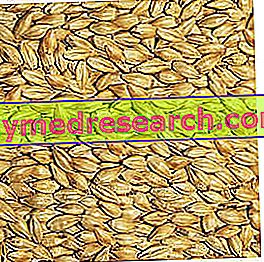See also: rusco extract in cosmetics
What is Rusco
Butcher's broom ( Ruscus aculeatus ) is a perennial shrub-like plant that grows wild in forests and undergrowths throughout Europe.

Active principles
The main components responsible for the aforementioned properties are two steroidal saponins, known as ruscogenin and neoruruscogenin, and several flavonoids (such as rutin or rutoside). These substances carry out their activity by increasing the resistance of the capillary walls and normalizing their permeability; this results in less fluid leakage and a reduction in bleeding symptoms.
Properties and Uses
Butcher's broom is appreciated in the therapy of venous insufficiency, as it favors the return of blood from the periphery to the heart; this effect is also useful in the presence of edema, hence the use in draining products, against tired, heavy and swollen legs.
The ruscus is often recommended to provide relief from the typical symptoms of haemorrhoids, such as itching and burning, and in the presence of anal fissures and proctitis.
On the market freeze-dried extracts of butcher's broom or its rhizome (improperly called "ruscus root" and suitable for the preparation of decoctions) are available. The dry extract is generally marketed in the form of capsules or drops and is widely used also in the preparation of gels and ointments dedicated to the treatment of disorders and conditions listed so far. For this purpose it is commonly added to other ingredients with which it shares the same phytotherapeutic properties (Centella asiatica, Horse Chestnut, Red Vine, Blueberry, Acerola, Ginko Biloba) and vitamins (C, E).
Mode of use
The recommended dosage for preparations to be taken orally is around 100-150 mg / day (which provide an average of 7 to 15 mg of ruscogenins).
Side effects
the rare, and in any case mild, side effects of ruscus are limited to the possible appearance of nausea and gastric disorders; the phytotherapeutic prestige of butcher's broom is also supported by the absence of important drug interactions.
Video
Watch the video
X Watch the video on youtube



